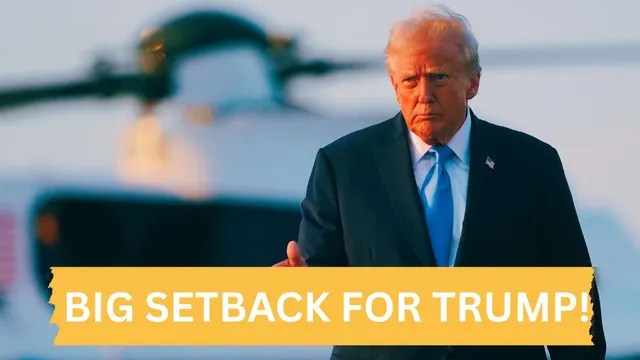- By Ajeet Kumar
- Sat, 04 Oct 2025 10:25 AM (IST)
- Source:JND
In what appears to be the twin challenge to the new USD 1,00,000 fee required for H-1B visa applications, and US President Donald Trump’s push to end birthright citizenship, both move were challanged in the court. A coalition of health care providers, religious groups, university professors and others filed a federal lawsuit on Friday to stop the H-1B visa plan, saying it has “thrown employers, workers, and federal agencies into chaos.”
Trump's H-1B visa faces challange in court
Trump signed a proclamation on September 19 requiring the new fee, saying the H-1B visa program “has been deliberately exploited to replace, rather than supplement, American workers with lower-paid, lower-skilled labour.” The changes were slated to go into effect in 36 hours, which caused panic for employers, who instructed their workers to return to the US immediately.
The lawsuit, filed in US District Court in San Francisco, said the H-1B program is a critical pathway to hiring healthcare workers and educators. It drives innovation and economic growth in the US, and allows employers to fill jobs in specialised fields, the lawsuit said.
“Without relief, hospitals will lose medical staff, churches will lose pastors, classrooms will lose teachers, and industries across the country risk losing key innovators,” Democracy Forward Foundation and Justice Action Centre said in a press release. “The suit asks the court to immediately block the order and restore predictability for employers and workers.” They called the new fee “Trump's latest anti-immigration power grab.”
Messages seeking comment from the Department of Homeland Security and US Customs and Border Protection, which are named as defendants along with Trump and the State Department, were not immediately returned.
Court says Trump admin cannot hold citizenship
Besides the visa issue, a federal appeals court in Boston ruled on Friday that the Trump administration cannot withhold citizenship from children born to people in the country illegally or temporarily, adding to the mounting legal setbacks for the president's birthright order.
A three-judge panel of the 1st US Circuit Court of Appeals became the fifth federal court since June to either issue or uphold orders blocking the president's birthright order. The court concluded that the plaintiffs are likely to succeed on their claims that the children described in the order are entitled to birthright citizenship under the Citizenship Clause of the 14th Amendment.
The panel upheld lower courts' preliminary injunctions, which blocked the birthright order while lawsuits challenging it moved ahead. The order, signed the day the president took office in January, would halt automatic citizenship for babies born to people in the US illegally or temporarily.
“The lessons of history' thus give us every reason to be wary of now blessing this most recent effort to break with our established tradition of recognising birthright citizenship and to make citizenship depend on the actions of one's parents rather than — in all but the rarest of circumstances — the simple fact of being born in the United States,” the court wrote.
(With inputs from agencies)

